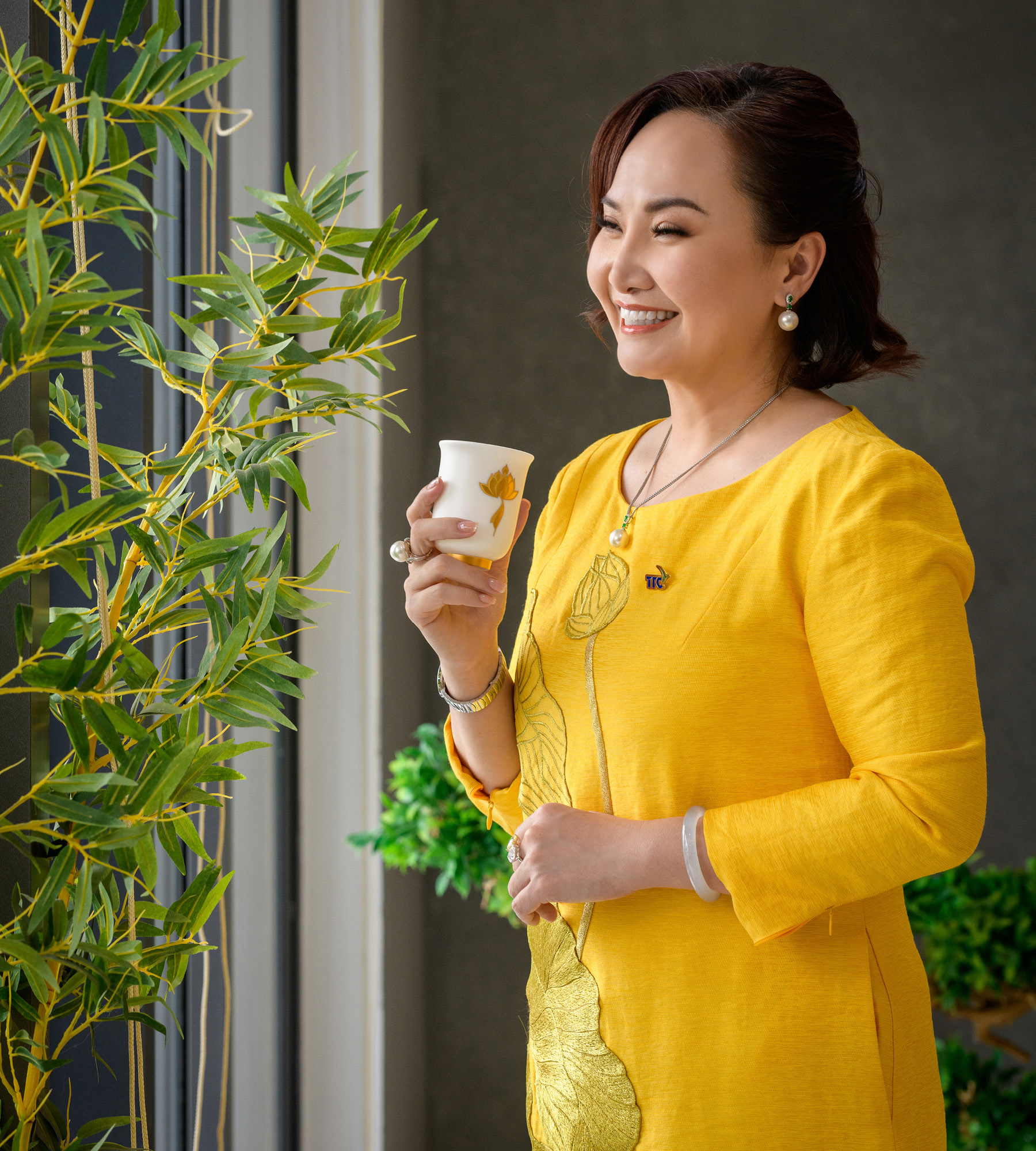One of the rising stars of the world’s food bowl is Vietnam. In 2022 alone, the South-East Asian nation’s agricultural sector enjoyed record growth, leading to a total turnover of over US$53 billion.
Playing a major role in this ascent is TTC AgriS, a Vietnam-based multinational agricultural enterprise with operations in Laos, Cambodia, Singapore and Australia and led by Vice Chairlady Dang Huynh Uc My. She believes that more than 50 years of experience has given TTC AgriS thorough knowledge of Vietnam’s agricultural industry, allowing it to take full advantage of what’s possible.
Best known as Omi Dang, she has been with the business for most of that time, starting with the company in 1979 and overseeing many changes since then. But one thing has remained constant, she stresses.
“During that time, we’ve always been steadfast on the journey of sustainable development,” she says.
“As we enter this latest phase of global response to climate change, we’re proud to uphold our ‘green’ business strategy, both as a development foundation and a competitive advantage to build ambitious momentum to expand the international market.”
Promoting Modern Agriculture
Originally known as a sugar company and squarely focused on production of the sweet stuff, TTC AgriS has extended its expertise into the coconut, rice and fruit markets; farming, including organic direction and optimizing crop value; R&D surrounding soil health and plant protection; and digital technology.
This expansion has resulted in an almost 50 percent market share in Vietnam’s sugar industry, making TTC AgriS one of the leading players in its field. Given that the field is on the up-and-up, the future looks bright for TTC AgriS.
“Over the next 10 years, our key task is to actively enter promising new business areas based on our root strengths and to focus on TTC AgriS’ circular commercial value chain,” Omi Dang says.
What sets TTC AgriS apart is its backbone philosophy of sustainable development, a goal chased by so many businesses around the world. Matters of ESG are integral for a company so entrenched in the natural world, and TTC AgriS has taken its responsibilities very seriously.
Besides that, it has narrowed its scope to include only clean agricultural products in its circular commercial value chain. This means its new products will aim to be healthy, nutritional and energy boosting, while having a minimal impact on the environment and the community.

“We’re proud to uphold our ‘green’ business strategy, both as a development foundation and a competitive advantage.”
“We focus on promoting the development of modern agriculture in parallel with protecting the surrounding environment and, at the same time, meet ESG criteria,” Omi Dang says.
The company is also using green R&D initiatives to treat its sugarcane for diseases and the trichogramma parasite, thereby reducing the amount of fertilizer required. This ensures a sustainable system, which enhances the development of plant protection, nutritional management, soil health and sugarcane varieties.
Overseas, TTC AgriS has already invested in 1,200 hectares of land in North Queensland, Australia. Located near the town of Tully, one of the world’s leading sustainable producers of modern agricultural commodities, the site is part of a plan to expand Australia’s digital farming technology coverage to 20,000 hectares as part of the company’s sustainable development strategy.
In fact, the company’s circular commercial value chain plays an important part in its 2030 vision, which includes a revenue target of US$2.48 billion to be achieved by unlocking potential markets and participating in the global food and beverage value chain.
With an integrated smart agri-economic business model at its heart, the commercial value chain will see the creation of a tech-heavy Commercial Center, making its existing supply chain greener. The company will also continue to adopt and comply with corporate governance criteria – including ESG – to international standards and pursue aggressive expansion of its plantations.
Within Vietnam’s borders, the latter point means promoting the development of technology applications towards the smart agri-economic model.
Grasping Sustainable Opportunities
International trade is a crucial element of the company’s – and Vietnam’s – success in agribusiness. That’s why the company is putting its country’s best foot forward in terms of produce.
“I also have the opportunity to manage and develop Ben Tre Import and Export Join Stock Corporation [BETRIMEX],” Omi Dang says. “Our core products are made 100 percent from nature and are entirely safe for customers.”
Reaping 1.2 billion fruits per year, Vietnam’s coconut production is ranked eighth in the world, with the highest yield and quality. Ben Tre, located in the Cuu Long River Delta, is particularly well suited to the cultivation of coconut trees thanks to its climate and soil conditions, according to Omi Dang.
‘The Xiem coconut in Ben Tre has a reputation for having thick coconut meat, fattier coconut copra and sweeter coconut water compared to other species,” she says.
“We quickly grasped the trend of natural beverage consumption in Vietnam and around the world in recent years to launch fresh canned coconut water product Cocoxim.

“In agriculture, sustainability is not a preference. It’s a sign of vitality.”
“It’s through products like Cocoxim that we’re able to create a sustainable relationship for ‘Planet-People-Profit’. I put high expectations on my company to achieve that.”
Coconuts aside, Omi Dang is constantly seeking to expand TTCAgriS’ range of highly nutritious, good value and sustainable products. As part of these efforts, she established the TTC AgriS Innovation Day 2023 focusing on new trends such as plant-based products which she says will “expand the market and create cooperative incentives for the food industry”.
“In agriculture, sustainability is not a preference; it’s a sign of vitality,” she says. “Food manufacturers, farmers and land investors across the globe who understand that have already begun to reap the benefits. There’s a variety of risks and opportunities related to ESG investing, and it’s up to us to pay attention to recreate, not to exploit.”
As such, she is committed to protecting TTC AgriS’ pioneering position in this area by promoting global sustainable agriculture, ensuring nutritional integrity and aiming for “net zero status by 2035”. In addition, she is looking at how to balance and increase the circular commercial value chain.
Omi Dang is quick to point out that for TTC AgriS, sustainability is not simply a business philosophy. “It determines success at every level, so I want to change people’s awareness of sustainability from mere natural thinking to daily actions,” she says.
“The benefits are there. It’s a long process to change perception, but as a leader, my job is to spread the transformational spirit to lead the era of green energy and sustainable mobility.”




